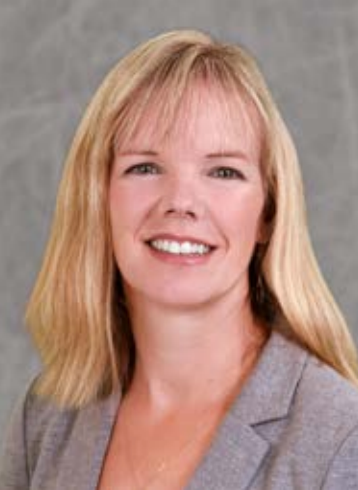Erin Baker Awarded the 2022 ASMS Biemann Medal
Erin Baker, an associate professor of chemistry at North Carolina State University, is the 2022 recipient of the ASMS Biemann Medal. Baker will receive the medal at the 2022 ASMS Conference in Minneapolis, Minnesota, which takes place June 5–9. She will receive the medal and deliver a plenary lecture on June 7 at 4:45 pm CST.
Erin Baker of North Carolina State University

The Biemann Medal is awarded to an individual early in his or her career in recognition of significant achievement in basic or applied mass spectrometry. The Biemann Medal was established by contributions from students, postdoctoral associates, and friends to honor Professor Klaus Biemann. The medal is conferred at the ASMS Annual Conference with the presentation of a $5,000 cash award, the Biemann Medal, and the award lecture.
Baker is receiving the award for her significant contributions in the development and application of ion mobility spectrometry–mass spectrometry (IMS–MS) technologies. Examples of Baker’s innovative scientific contributions include the development of new IMS techniques and methods and significant contributions to the improvement of drift tube IMS (DTIMS) platforms, coupling this improved IMS–MS platform with solid-phase extraction (SPE) and liquid chromatography (LC) separations to enable high-throughput IMS measurements with enhanced sensitivity for metabolomics, lipidomics, proteomics, and exposomics applications. She has also created of one of the first collision cross section (CCS) databases for more than 500 metabolites and xenobiotics to enable large-scale metabolomics and exposomic studies by IMS technology. In addition, she has developed a cheminformatic toolbox called Structural-based Connectivity and Omic Phenotype Evaluations (SCOPE), to enable the assessment and visualization of lipidomic associations in environmental and clinical studies.
Baker also has contributed to the MS community through her key role in the establishment of the new group “Females in Mass Spectrometry (FeMS)” whose initial activities coincided with the onset of the coronavirus pandemic. During this situation that isolated individuals from their communities, FeMS has built an extensive worldwide network (also including males transgender, and nonbinary participants) that provides frequent virtual opportunities for education, collaboration, and mentorship.
New TRC Facility Accelerates Innovation and Delivery
April 25th 2025We’ve expanded our capabilities with a state-of-the-art, 200,000 sq ft TRC facility in Toronto, completed in 2024 and staffed by over 100 PhD- and MSc-level scientists. This investment enables the development of more innovative compounds, a broader catalogue and custom offering, and streamlined operations for faster delivery. • Our extensive range of over 100,000 high-quality research chemicals—including APIs, metabolites, and impurities in both native and stable isotope-labelled forms—provides essential tools for uncovering molecular disease mechanisms and exploring new opportunities for therapeutic intervention.
New Guide: Characterising Impurity Standards – What Defines “Good Enough?”
April 25th 2025Impurity reference standards (IRSs) are essential for accurately identifying and quantifying impurities in pharmaceutical development and manufacturing. Yet, with limited regulatory guidance on how much characterisation is truly required for different applications, selecting the right standard can be challenging. To help, LGC has developed a new interactive multimedia guide, packed with expert insights to support your decision-making and give you greater confidence when choosing the right IRS for your specific needs.

.png&w=3840&q=75)

.png&w=3840&q=75)



.png&w=3840&q=75)



.png&w=3840&q=75)




